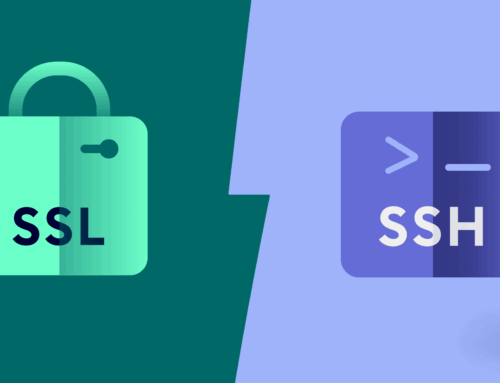
Network Security Mistakes Small Businesses Make
Network Security Mistakes Small Businesses Make
In today’s digital landscape, small businesses face a myriad of cybersecurity threats that demand attention and proactive measures. As the world becomes increasingly interconnected, the risk of cyberattacks is a significant concern for many small businesses. This article explores the common network security mistakes made by small enterprises and provides insights into how to protect your business from potential threats. By understanding these pitfalls, you can fortify your organization against cyber vulnerabilities.
Understanding Cybersecurity Threats
Common Cybersecurity Mistakes Small Businesses Make
Many small businesses often underestimate the complexity of cybersecurity, leading to common mistakes that can be detrimental. Recognizing and addressing these mistakes is crucial to safeguarding your enterprise from hackers. Some of the common pitfalls include:
- Failing to implement comprehensive security measures, such as multi-factor authentication, which leaves them susceptible to cyber threats.
- A lack of proper incident response plans and inadequate employee security training, further exacerbating their vulnerability.
Top Cybersecurity Threats Facing SMBs
SMBs face a unique set of cybersecurity threats These vulnerabilities can be exploited by cyber attacks that can compromise your business needs. Understanding these threats, including potential cyber attacks, is vital for any business intent on protecting its infrastructure. Key threats include:
- Phishing attacks that target unsuspecting employees to gain access to sensitive information.
- Ransomware and malware, which pose significant risks and can potentially lead to costly data breaches.
Cybercriminals continually develop sophisticated methods to exploit security weaknesses.
The Importance of Staying Informed
Staying informed about cybersecurity developments is essential for small businesses to maintain a robust security posture. Regular security assessments and updates to antivirus software can mitigate potential risks. Engaging with reliable service providers helps in anticipating and mitigating cyber risks through vigilant monitoring and swift response strategies. Empower your business by staying ahead of emerging threats and fortifying your defenses.
Employee Training and Awareness
Importance of Cybersecurity Training
Cybersecurity training is a cornerstone of any effective security strategy. Educating employees about security threats and instilling best practices can significantly reduce the likelihood of breaches. Comprehensive training programs should cover several essential topics, including security awareness and the implications of social engineering.
- Password management
- Incident response
- Recognizing phishing scams is crucial in preventing security incidents that can jeopardize your business.
Investing in employee cybersecurity awareness not only protects your business but also ensures that your team is aligned with security objectives.
Recognizing Phishing Emails
Phishing emails are a common tactic used by cybercriminals to deceive employees into revealing sensitive information. Training employees to recognize the signs of phishing attacks is a crucial defense mechanism. Encourage vigilance and the verification of email authenticity to prevent unauthorized access. By cultivating a culture of awareness, businesses can effectively minimize the risk of falling victim to phishing scams.
Best Practices for Employee Awareness
Implementing best practices for employee awareness is key to maintaining a secure business environment. Regular security training sessions, clear communication of security policies, and the promotion of a security-first mindset are fundamental steps. Additionally, fostering an open dialogue about potential threats and the importance of reporting suspicious activities can further enhance your organization’s security posture. Prioritizing employee awareness ensures a proactive approach to cyber security and helps mitigate risks from social engineering.
Password Management and Authentication
Creating Strong Passwords
In the realm of cybersecurity, the foundation of a robust security posture begins with creating strong passwords. Many small businesses overlook the importance of complex passwords, making them easy targets for hackers in a cyber security landscape. To fortify your business against cyber threats, use a mix of uppercase, lowercase, numbers, and symbols. This simple yet effective strategy significantly reduces the risk of unauthorized access and potential breaches.
Implementing Multi-Factor Authentication
Implementing multi-factor authentication (MFA) is a crucial step in safeguarding your enterprise. MFA adds an extra layer of security, requiring users to verify their identity through more than just a password. This approach drastically minimizes the likelihood of cybercriminals exploiting vulnerabilities, ensuring your business infrastructure meets essential security requirements. Empower your organization by adopting MFA and enhancing your overall security measures.
Common Password Mistakes
Common mistakes small businesses make include reusing passwords across multiple platforms and neglecting to update them regularly. These oversights can lead to significant security breaches, as hackers often exploit these vulnerabilities. Encourage regular password changes and educate employees on password best practices to prevent unauthorized access and potential security incidents. Protect your business by addressing these mistakes and strengthening your cybersecurity framework.
Incident Response and Management Guidance
Developing an Effective Incident Response Plan
An effective incident response plan is vital for mitigating the impact of a cyberattack. It outlines the steps to take when a security breach occurs, ensuring a swift and coordinated response. Start by identifying potential threats and vulnerabilities related to cyber security, then establish clear roles and responsibilities. This proactive approach not only protects your business but also reinforces your commitment to cybersecurity excellence.
Steps to Take After a Security Breach
In the wake of a security breach, immediate action is imperative to minimize damage. First, contain the breach to prevent further exploitation. Next, conduct a thorough investigation to understand the scope and source of the attack. Communicate transparently with stakeholders and implement necessary changes to your security policies. By taking decisive steps, you can restore trust and fortify your defenses against future threats.
Regular Incident Response Drills
Regular incident response drills are essential for maintaining a high level of preparedness. These exercises simulate real-world cyberattacks, allowing your team to practice and refine their response strategies. By conducting drills, you can identify potential weaknesses in your incident response plan and ensure your team is ready to act swiftly and effectively. This proactive approach strengthens your organization’s resilience against cyber threats.
Protecting Your Business from Cyber Threats
Utilizing Antivirus Software
In today’s rapidly evolving digital environment, Antivirus software is an indispensable tool in maintaining robust cyber security. for safeguarding your business against cyber threats. By actively scanning for malware and other malicious entities, antivirus solutions provide a crucial layer of security against cyber attacks. They help detect and neutralize threats before they can exploit vulnerabilities. Ensure you’re using reputable antivirus software to protect your business’s integrity and prevent potential data breaches.
Keeping Software Up to Date
Maintaining up-to-date software is vital in the fight against cybersecurity threats. Software updates often include patches that address known vulnerabilities, reducing the risk of exploitation by hackers. Neglecting updates can lead to significant security gaps, making your business susceptible to cyberattacks. Prioritize regular software updates to comply with the latest security requirements and best practices. to enhance your security posture and ensure that your systems are resilient against emerging threats, including potential cyber attacks.
The Role of Data Backup in Cybersecurity
A robust data backup strategy is fundamental in mitigating the impact of cyberattacks such as ransomware. Regularly backing up data ensures that, in the event of a breach, your business can quickly recover crucial information without succumbing to cybercriminal demands. Implementing automated backup solutions provides peace of mind, knowing that your data is secure and retrievable, thus fortifying your defenses against catastrophic data loss.
Mobile Security Considerations
Security Challenges with Mobile Devices
Mobile devices present unique security challenges for businesses today. The portability and connectivity of smartphones and tablets increase the risk of data breaches and unauthorized access, highlighting the need for enhanced cloud security measures. Employees may unknowingly expose sensitive information through insecure networks or apps. Addressing these challenges requires a comprehensive mobile security strategy that encompasses device management, secure access policies, and employee training to mitigate potential threats.
Best Practices for Mobile Security
Adhering to best practices for mobile security is essential to protect your business from cyber threats. Implementing mobile device management (MDM) solutions enables control over device access and data security. Educating employees on the significance of secure connections and the dangers of phishing scams further enhances protection. By adopting these measures, you can effectively manage risks associated with mobile devices and ensure secure business operations.
Staying Ahead of Evolving Cyber Threats
In the ever-changing landscape of cybersecurity, staying ahead of evolving threats is critical. Regular security assessments and engaging with trusted service providers can help anticipate and mitigate risks. By fostering a culture of continuous learning and adaptation, your business can proactively address emerging threats. This forward-thinking approach ensures that your security measures remain robust and your infrastructure secure, empowering your business to thrive.
What are the top cybersecurity mistakes small businesses make?
Small businesses often make critical mistakes in cybersecurity that can expose them to significant risks. These include failing to implement robust security measures, neglecting regular backups, and not updating software. Additionally, many companies overlook the importance of employee training and often lack a dedicated security team to monitor their network effectively.
How can small businesses face cybersecurity threats effectively?
To face cybersecurity threats effectively, small businesses should adopt a multi-layered approach to security. This includes investing in security tools such as firewalls and antivirus software, implementing endpoint security, and ensuring regular network monitoring. Moreover, creating an incident response plan can help businesses respond to threats swiftly and efficiently.
What role does employee training play in avoiding mistakes small businesses make?
Employee training is essential in avoiding common cybersecurity mistakes. By educating employees about phishing attacks and the importance of strong passwords, businesses can significantly reduce the risk of human error, which is one of the leading causes of security breaches. Regular training sessions tailored to the specific needs of the business can help reinforce best practices.
How do regular backups help improve your security?
Regular backups are one of the most cost-effective ways to ensure business continuity in the event of a cyber attack or data loss. By maintaining up-to-date backups, small businesses can quickly recover their critical systems and minimize downtime. This practice not only protects against ransomware but also mitigates the impact of security holes that may be exploited by hackers.
Why do small businesses often lack the resources for cybersecurity?
Many small businesses often lack the resources to implement comprehensive cybersecurity measures due to budget constraints. They may not have dedicated security teams or the ability to invest in advanced security tools. However, leveraging managed services can help these businesses access tailored security solutions without the need for substantial upfront investment.
What are the top cybersecurity threats facing small businesses today?
The top cybersecurity threats facing small businesses today include phishing emails, ransomware, and data breaches. Cybercriminals often target small businesses believing they’re too small to be targeted. By staying informed about these threats and implementing security controls, small businesses can enhance their overall security posture.
How can password management help prevent mistakes small businesses make?
Password management is crucial for preventing common mistakes small businesses make regarding security. Implementing multi-factor authentication and encouraging the use of strong, unique passwords can significantly reduce the risk of unauthorized access. Educating employees about the importance of password security is also a vital component of an effective cybersecurity strategy.
What is a response plan, and why is it important for small businesses?
A response plan is a structured approach that outlines how a business should respond to cybersecurity incidents. It’s crucial for small businesses as it ensures that they can quickly and effectively mitigate the impact of a security breach. Having an incident response plan allows businesses to recover faster and minimizes potential damage to their reputation and operations.
How can small businesses enhance their network security with cloud services?
Cloud services can enhance network security for small businesses by providing scalable and flexible security solutions. Many cloud service providers offer built-in security features such as data encryption, regular updates, and advanced threat detection. By utilizing cloud services, small businesses can improve their security posture without needing extensive on-premises infrastructure.





